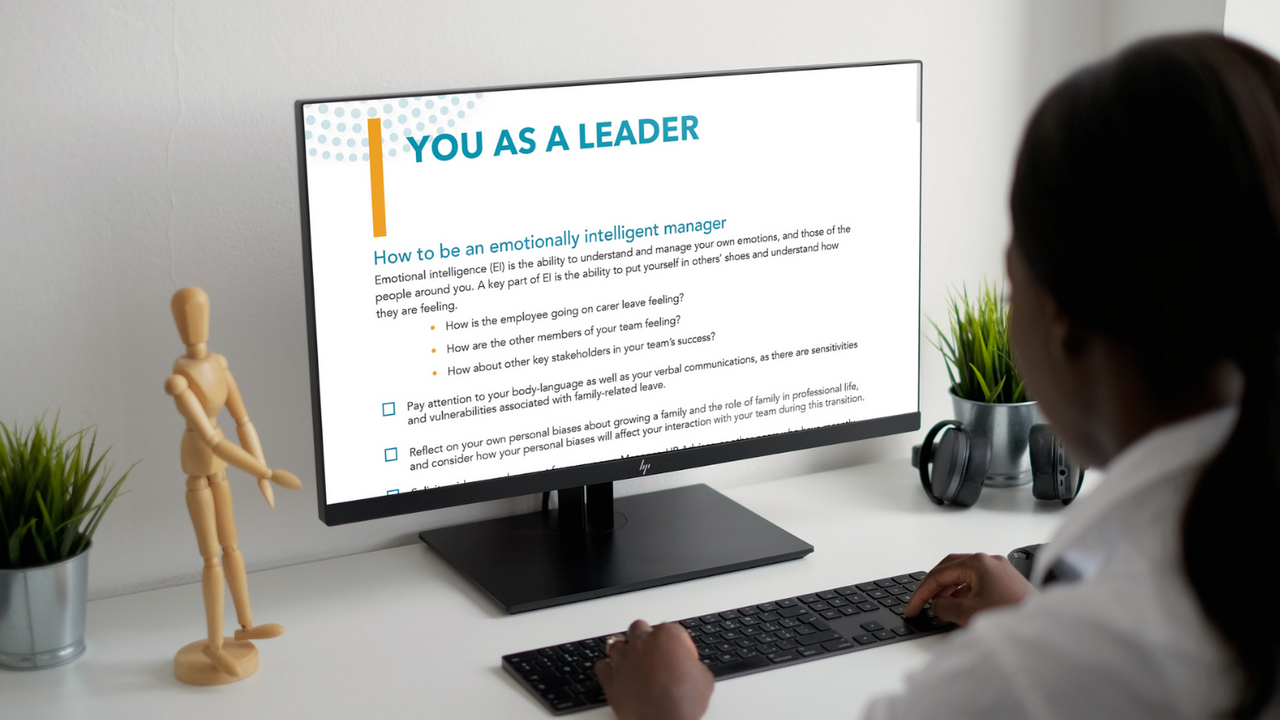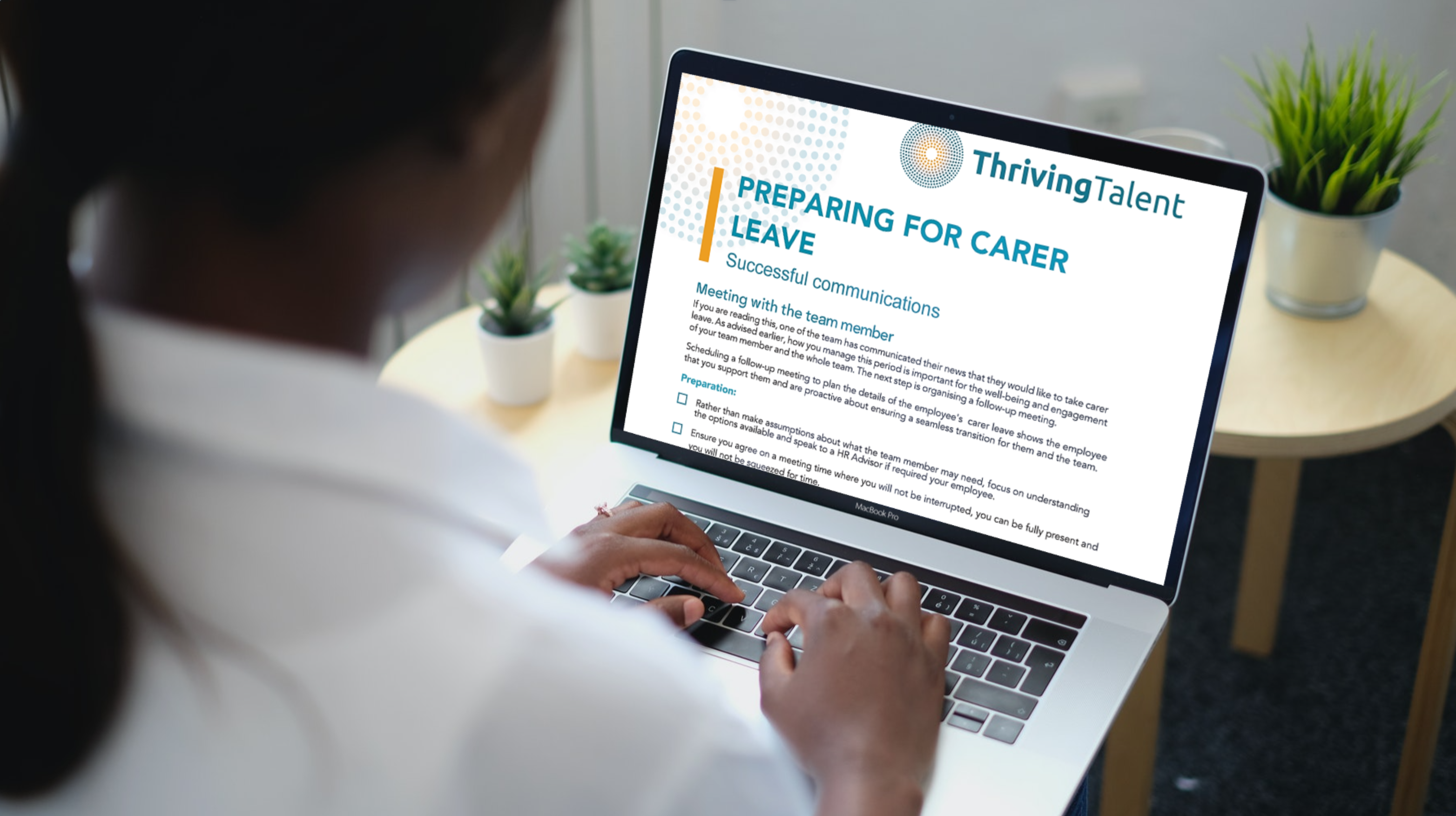Are you meeting your employees' expectations?
Jul 01, 2022
There is no denying that the impact of COVD-19 brought many challenges to both individuals and businesses, large and small. However, it has also driven new working practices and mindsets that offer an incredible opportunity for organisations to foster inclusive cultures and equality at work.
As employees return to the office, many men and women are looking to work in organisations which offer better flexibility and hybrid working models so that they can continue to balance their personal caring commitments alongside their professional aspirations.
The Great Resignation is a buzzword coined in 2021 which describes a post-pandemic trend hitting developed economies around the world. A record number of workers did quit their jobs in 2021, it’s true. However, if you consider that number in the context of total employment during the past dozen years, as illustrated in Figure 1 (source: HBR), you can see that what we are living through is not just short-term turbulence provoked by the pandemic but rather the continuation of a long-term trend.

In the HBR article, the authors share that five factors, exacerbated by the pandemic, have combined to yield the changes that we’re living through in today’s labour market. They call these factors the Five Rs: retirement, relocation, reconsideration, reshuffling, and reluctance.
Workers are retiring in greater numbers but aren’t relocating in large numbers; they’re reconsidering their work-life balance and care roles; they’re making localised switches among industries, or reshuffling, rather than exiting the labour market entirely; and, because of pandemic-related fears, they’re demonstrating a reluctance to return to in-person jobs.
In this McKinsey article about the Great Resignation, the top three factors employees cited as reasons for quitting were that they didn’t feel valued by their organizations (54 percent) or their managers (52 percent) or because they didn’t feel a sense of belonging at work (51 percent). Notably, employees who classified themselves as non-White or multiracial were more likely than their White counterparts to say they had left because they didn’t feel they belonged at their companies—a worrying reminder of the inequities facing Black employees and other minority groups.
Staying with the R theme - Deloitte published a report on the Great Reimagination to guide companies on how to reimagine the world of work. It's over 30 pages long, so skip to pages 12 and 13. They claim similar trends to the McKinsey article. People are choosing to leave because of salary (especially millennials), workplace culture and societal impact, need to learn and grow, work-life balance and a desire for flexibility.
Over the last 2 years, we have witnessed a huge surge in companies taking the leap to start their diversity, equity and inclusion journey. Business leaders and HR professionals are busy trying to work out how to foster an inclusive culture and meet their diversity goals. Many questions are being asked to figure out this complex puzzle.
Every year, the University of St Gallen in partnership with Advance publish an annual report that is based on Advance member organisation employee data to highlight key insights on what is holding companies back and best practices to learn from other companies doing the work. In a nutshell, the report illustrates that the rules of the game are different for women (arguably for any under-represented group) and to make real progress, we need to change the rules and make them equal (and equitable) for everybody.
We see the persistent trends of people resigning and leaving their organisations clearly linked to the issues highlighted by Diversity, Equity and Inclusion (DEI) leaders.
People need their employers to care and be supportive of their life stage, their ambitions and appetite for growth and their caring responsibilities. In order to respond to this, line managers and HR have to hold the tension between being equitable with their approach (ie. adapt to the needs and context of the person) whilst not being seen to make too many exceptions.
This is something that all gender identities are seeking from their employers. Parental leave is a classic example.
If you follow the #showusyourleave hashtag on Linkedin you will discover many companies and employees bragging about the increased paid parental and carer leave they offer. In contrast, there is also an increasing number of fathers posting about the need to resign from their companies in order to have the chance to have quality time with their kids and to be able to care for them. You can use the following hashtag #DadLife to read examples and the DaddiLife community platform is another fine example of how modern fathers are doing 'parenting' more equally.
There is a clear call to action for line managers and HR to be equipped to have these conversations with employees in an inclusive and equitable way. We can't expect middle management to have all the answers and strategies - they need help and support as well.
So how can line managers and HR easily manage extended carer and parental leave?
Having a policy is one thing, acting on it is another completely.
As part of their DEI programme, a global pharma company recently rolled out a Caring & Career pilot to better support line managers and HR to manage extended periods of leave. They offered line managers a workshop as well as a Toolkit which prompts them through actions and tips to actively manage extended periods of employee leave, such as parental leave.
One manager shared " the checklists helped anticipate the needs and possible challenges that my colleague may have preparing for her parental leave that wouldn't have necessarily been obvious if you had not also been a parent or indeed parented differently i.e. have a stay-at-home primary carer! They also helped as a reminder with ideas on what to do /say and when. The content was also inclusive so it didn't speak to one culture or country and it was relevant to all".
The impact? The Toolkit not only saved HR a lot of time by not having to design it from scratch, it also boosted the employee experience for those leaving and re-entering the workplace.
Find out more about the Line Manager toolkit here.

Conclusion
DEI and HR leaders are carrying the burden of helping organisations to change ways of working and embed inclusive behaviours and equitable systems. Progress is often held back by a lack of resources to support middle management to play their role.
Companies need to seek out cost-effective tools and training and offer these as soon as a manager is promoted or recruited and reinforced in management development training. And if they are rolling out new policies such as extended parental or carer leave, they need to invest in a strategic change management approach to ensure take-up.
Employee expectations are not going to go away anytime soon. How prepared is your organisation to meet them?
Stay connected with news and updates!
Join our mailing list to receive the latest news and updates from our team.
Don't worry, your information will not be shared.

